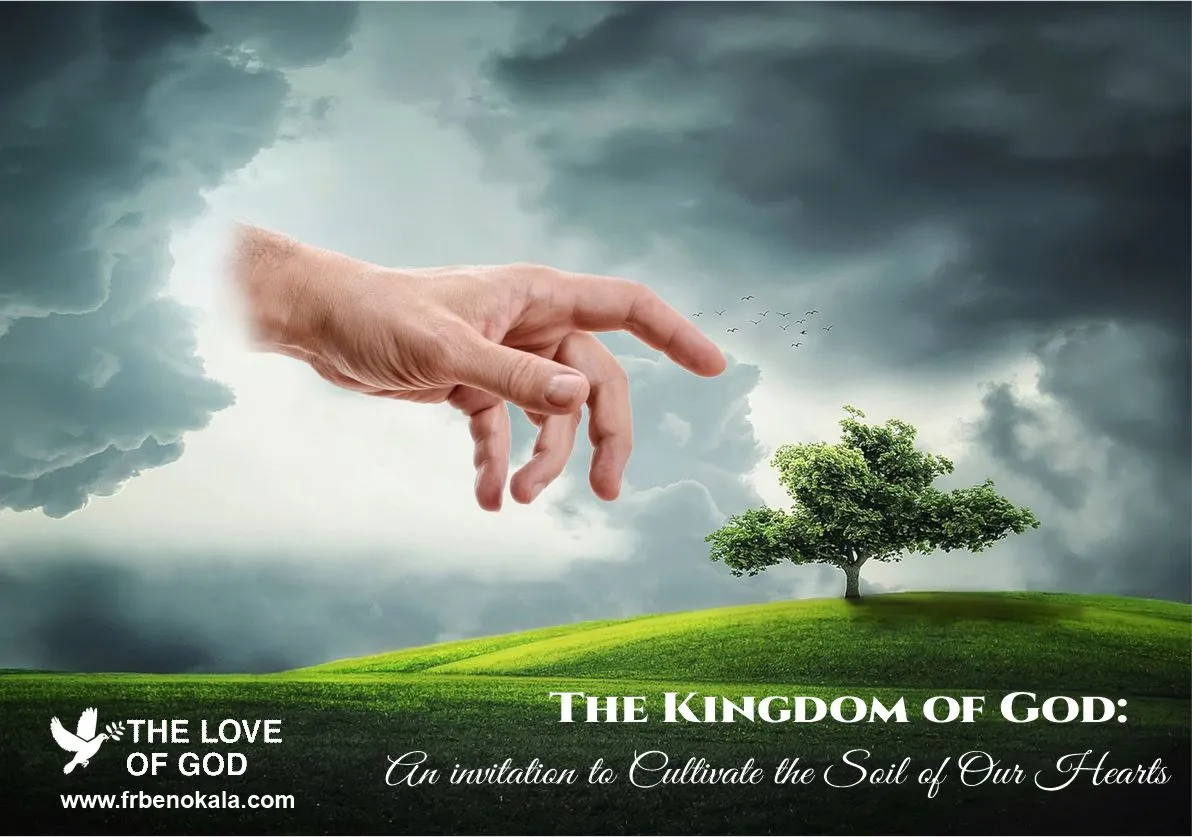Homily of 32nd Sunday in Ordinary Time, Year A
First Reading: Wisdom 6:12–16; Second Reading: 1 Thessalonians 4:13–18; Gospel: Matthew 25:1–13
INTRODUCTION
Every human being is called to serve a specific purpose here on earth. To actualize this purpose, one needs to be awake and wise. Cosmologically speaking, the universe is divided into day and night (light and darkness). At night, during sleep, the brains and bodies of human beings remain in a state of rest or inactivity. This allows the brain and body to rejuvenate and vital processes to occur. Of course, sleep is a complex biological process that involves various physiological and neurological mechanisms.
On the other hand, during the day, the brains and bodies become awake and ready for activities. This implies that being asleep leads to unproductivity or inactivity, while being awake means being active. However, someone could be awake yet inactive and foolish. Meanwhile, today’s readings invite us to recognize and appreciate the importance of wisdom, especially in human existence and salvation. Hence, in this homily, we shall explore the importance of wisdom and virtue. How they can help us to be actively awake and prepared, particularly in our spiritual journey in preparation for the coming of Christ.
THE PARABLE OF THE WISE AND FOOLISH VIRGINS
In the gospel reading of today, Jesus Christ connects wisdom with practical or real-life situations. Here, He uses the parable of the ten virgins to explain the Kingdom of God in concrete existential circumstances. Five of the virgins were wise and prepared, while the other five were foolish and unprepared. The wise virgins had extra oil for their lamps, symbolizing their virtues and preparedness for the arrival of the bridegroom.
On the other hand, the foolish virgins did not have enough oil and were caught unprepared when the bridegroom arrived. In other words, they knew God’s commandments (lamp) but lacked the wisdom required for the journey, as well as virtues (oil). That was why they missed out on the glorious wedding feast. Even though they wanted to make amends, it was already late since the wise virgins refused to share their oils with them. Jesus Christ condemned their idleness and lack of preparation. This parable reminds us that we must be spiritually awake and prepared for the coming of Christ.
WHAT DOES IT MEAN TO BE AWAKE OR WISE?

To be awake means to be alert, mentally perceptive, and responsive; to rouse from sleep; or to come out of darkness into light. Moreover, it means waking up from spiritual slumber and coming out of the darkness of sin into the light of God’s love. On the other hand, to be wise means making sensible decisions and judgments based on our personal knowledge and experience of God. It means living a righteous life and embracing the virtues that will sustain one on his spiritual journey.
LACK OF TRUE WISDOM AND POOR CHOICES IN DECISION-MAKING
Some people see themselves as wise or clever, especially when they employ logic, philosophy, and psychology to dupe or defraud people. They tend to make intelligent decisions, which sometimes may not be in line with God’s commandments. This is not wisdom, but rather foolishness (1 Corinthians 3:19). Many people lack true wisdom, and this is shown when they make life decisions (Hosea 4:6). Most of them think and behave as if life starts and ends only in this present world; thus, they do not plan for eternal life (Luke 12:13–21).
For instance, some of our leaders have a poor sense of judgment when it comes to sustainable development or planning for future eventualities. Some of them are selfish and always concerned about how to loot the treasury to enrich their relatives. They would prefer that the oil-reserved funds and other national savings be shared and lavished. Even when they borrow money from other nations, they squander it and use it for frivolity. Consequently, these foolish attitudes affect the economic growth and development of the country (James 1:5).
TRUE WISDOM: A NECESSARY TOOL FOR REMAINING AWAKE AND ACTIVE

The Christian life demands activity, alertness, and preparedness. One of the things that helps us to be alert, prepared, and spiritually sensitive is the gift of wisdom. The first reading from the Book of Wisdom emphasizes the importance of true wisdom. True wisdom is not just about knowledge or intelligence. It is about making sensible decisions and judgments based on personal knowledge and experience in line with God’s commands. This is because true wisdom is pure, kind, merciful, and just, and has no trace of partiality or hypocrisy (James 3:17). It helps us plan for future eventualities.
Furthermore, the call to discipleship requires one to be pure, innocent, and wise (Matthew 10:16). Undoubtedly, true wisdom is easily recognized by those who love the truth and easily found by those who seek true knowledge. For instance, the parable of the wise (built on rock) and foolish (built on sand) house builders illustrates the need to always make adequate planning for future eventualities (Matthew 7:24–27).
Moreover, in our spiritual journey, true wisdom is essential for discerning God’s will and making choices that align with His plan for our lives. Being a virgin is not enough; we need true wisdom, which helps us to be spiritually awake and prepared. It is through this wisdom that we can discern how to live a righteous life and be prepared for the coming of our Lord Jesus Christ.
VIRTUES ENABLE US TO BE AWAKE AND ACTIVE
Another way to remain awake and active for the second coming of Christ (Parousia) is to acquire extra oil (virtues). According to the Catechism of the Catholic Church, virtue (arete) is a habitual and firm disposition to do good (CCC 1803). As St. Gregory of Nyssa rightly puts it, the goal of a virtuous life is to be like God. By cultivating these virtues, we can be awake and active, eagerly awaiting the Parousia and faithfully fulfilling our purpose as followers of Christ.
There are two different types of virtues: cardinal virtues and theological virtues.
Cardinal Virtues:
These are habitual and stable perfections of the intellect and will that govern our actions, order our passions, and guide our conduct according to reason and faith. They are acquired and strengthened by the repetition of morally good acts, and they are purified and elevated by divine grace (CCC 1804). Cardinal virtue is also known as Human virtue, which includes prudence, justice, fortitude, and temperance.
- Prudence: disposes of the practical reason to discern, in every circumstance, our true good and to choose the right means for achieving it.
- Justice: consists of the firm and constant will to give others their due.
- Fortitude: ensures firmness in difficulties and constancy in the pursuit of the good.
- Temperance: moderates the attraction of pleasures of the senses and provides balance in the use of created goods.
Theological Virtues:
These are the virtues that have God Himself as their origin, motive, and direct object. They inform and give life to all the moral virtues and are infused by God into the souls of the faithful. This helps to make them capable of acting as His children and of meriting eternal life (CCC 1812–1813). There are three theological virtues: faith, hope, and charity.
- Faith: is a supernatural gift of God by which we believe without doubt what God has said and revealed to us because He is truth itself (Hebrews 11:1). Our faith in the reality of Christ’s second coming motivates us to live in anticipation and readiness as we trust in His promises.
- Hope: is the virtue by which we desire the kingdom of heaven and eternal life as our happiness. Also, we place our trust in Christ’s promises and rely not on our own strength but on the help of the grace of the Holy Spirit (1 Peter 1:3). This living hope inspires us to actively pursue righteousness and fulfill our God-given purpose.
- Charity (love): is the virtue by which we love God above all things for his own sake and our neighbour as ourselves for the love of God. Love is a sacrificial enterprise that fuels compassionate action and motivates us to serve and care for those in need (1 Corinthians 16:14).
Other important virtues are:
- Compassion: “Be kind to one another, tender-hearted, forgiving one another, as God in Christ forgave you” (Ephesians 4:32).
- Forgiveness: “For if you forgive others their trespasses, your heavenly Father will also forgive you” (Matthew 6:14).
- Humility: “Humble yourselves before the Lord, and he will exalt you” (James 4:10).
- Obedience: “If you love me, you will keep my commandments” (John 14:15).
- Magic words: these are various expressions that are considered polite, persuasive, or socially appropriate in different contexts. E.g., excuse me, I am sorry, please forgive me, thank you, I love you, etc.
Other ways we can remain active and awake are through:
- Prayer: strengthens our relationship with God, provides guidance, and empowers us to persevere in our faith (1 Thessalonians 5:16–18).
- Scripture Reading: serves as a source of wisdom, guidance, and encouragement, helping us discern God’s will and live by His teachings (2 Timothy 3:16–17). Hence, regular scripture reading equips us with the knowledge and understanding necessary to be awake and spiritually sensitive.
- Frequent Confession: is a powerful spiritual exercise that helps to maintain our relationship with God. It helps to purge and cleanse our hearts from every stain of sin. Also helps to keep our souls pure, active, and ready for the coming of our bridegroom, Jesus Christ (Luke 13:3).
ASSURANCE OF ETERNAL LIFE AFTER DEATH
In the second reading, St. Paul encourages us with a message of hope and comfort in the face of death. He assures us that those who have fallen asleep in Christ will rise again and be with Him forever. Furthermore, he urges us to live our lives in a way that reflects our belief in the resurrection and the promise of eternal life. Death is not the end but a transition to a new and glorious existence with God. In light of these readings, we are called to be awake, wise, and prepared for the coming of our Lord Jesus Christ.
CONCLUSION
Jesus Christ has given us the requirements for entering the Kingdom of God, which are purity, innocence, and wisdom. Those who live wisely, actively, and awake with extra oil of righteousness (virtues) shall be admitted into His Heavenly Kingdom. Beginning with those who have fallen asleep. Therefore, let us not live in darkness or be like the foolish virgins who were caught unprepared. Instead, let us be like the wise virgins who had extra oil for their lamps.
Since Christ has destroyed death and brought life and immortality through the gospel (2 Timothy 1:10), let us constantly seek a deeper intimacy with God. We can achieve this through prayer, frequent confession, a life of righteousness, etc. So, brethren, let us live our lives in a way that reflects our belief in the resurrection and the promise of eternal life (1 Corinthians 15:54–57).
PRAYER:
May the Holy Spirit empower and guide you on your faith journey. May your oil never run dry, and may you be found awake and prepared at the Parousia, through Jesus Christ our Lord, Amen.
Peace of Christ be with you…
Rev. Fr. Ben Okala, C.S.Sp.




